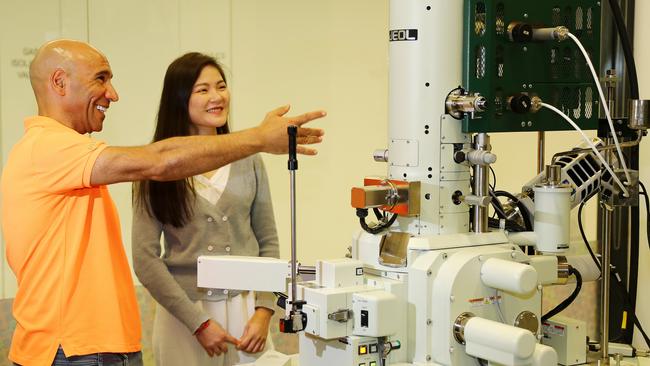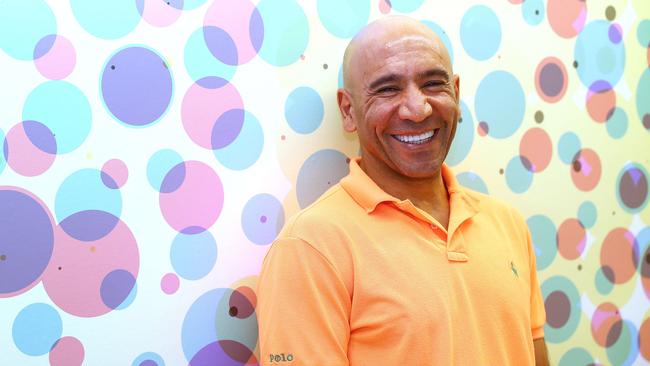Geelong researcher leads nanoneedle blood cancer breakthrough
A Geelong researcher has helped achieve a “world-first” breakthrough, using nanoneedles 100,000 times less than the width of a human hair.

Geelong
Don't miss out on the headlines from Geelong. Followed categories will be added to My News.
A Geelong researcher has helped achieve a “world-first” breakthrough, using nanoneedles 100,000 times less than the width of a human hair, that could improve treatment options for some blood cancers.
A multidisciplinary team led by Australian Research Council (ARC) Future Fellow Roey Elnathan, from Deakin University’s School of Medicine, and ARC Laureate Professor Nicolas Voelcker, from Monash University, has harnessed the power of nano-injection technology to improve outcomes in one of the newest forms of cancer immunotherapies — CAR-T cell therapy.
CAR-T cell therapy involves taking a cancer patient’s white bloods cells, known as T cells, and genetically engineering them before they are infused back into the patient to attack cancer.
Because of the number of steps involved, the process is slow and expensive, currently costing more than $500,000 per patient, according to Deakin.
Using tiny nanoneedles, the research team has found a way to eliminateviral vectorsfor genetically encoding T cells.
Viral vectors are commonly used to deliver genetic material into cells but result in costly treatment delays in current CAR-T cell manufacturing.

Dr Elnathan said a specialised microscope tool was used to help researchers see how the nanoneedle was interacting with cells.
Professor Voelcker said the research promised to change the business model of the CAR-T cell therapy from boutique to widely affordable.
“The non-viral process would reduce the complexities and eliminate the safety issues associated with viral vectors,” Professor Voelcker said
Dr Elnathan said there was an urgent need for a scalable, affordable, streamlined CAR-T cell manufacturing process that did not rely on viral vectors.
“We’re using nanotechnologies to enable targeted delivery of advanced non-viral therapeutics into primary human immune cells, which are notoriously difficult to transfect,” Dr Elnathan said.
“We have already shown that our nano-injection platform can re-engineer cells that benefit patients in vitro (in cell culture).
“We now need to test this technology at a clinical level.”
Deakin and Monash universities are collaborating with ULVAC Inc. in Japan to scale up fabrication of the nano-injection.
The research team is now benchmarking the efficiency in preclinical studies.
The ARC Training Centre for Cell and Tissue Engineering Technologies is supporting researchers in the field of nanotechnology for emerging cancer immunotherapies.
Researchers anticipated it would take several years to test the technology in clinical settings before it could become available as approved therapy.
Preliminary findings have been published in Advanced Materials and Materials Today journals.
More Coverage
Originally published as Geelong researcher leads nanoneedle blood cancer breakthrough





